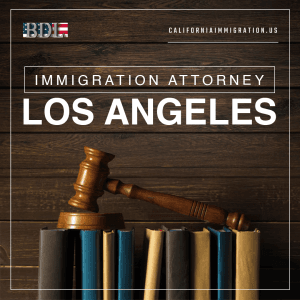
Supreme Court Bars Federal Court Review of Visa Petition Revocations
In a significant ruling, the Supreme Court has unanimously held that federal courts lack jurisdiction to review the Department of Homeland Security’s (DHS) decision to revoke a previously approved visa petition. This landmark decision, detailed in the case of Bouarfa v. Mayorkas, confirms a broad expansion of the executive branch’s discretionary authority over immigration enforcement. Furthermore, it severely limits judicial oversight in these cases.
The Legal Basis of the Decision
The Court’s decision centered on the interpretation of two key statutes within the Immigration and Nationality Act (INA):
- INA § 205 (8 U.S.C. § 1155): This statute states that the Secretary of Homeland Security “may, at any time, for what he deems to be good and sufficient cause,” revoke the approval of a family-based or employment-based immigrant visa petition.
The Supreme Court, in an opinion authored by Justice Ketanji Brown Jackson, concluded that the language of INA § 205—particularly the word “may” and the phrase “for what he deems to be good and sufficient cause”—clearly indicates that Congress intended for visa revocations to be a purely discretionary action. Because the decision is discretionary, it falls under the jurisdiction-stripping provision of INA § 242. This effectively precludes federal court review.
Implications and Concerns
This ruling resolves a split among federal appeals courts and has far-reaching implications for the U.S. immigration system. For individuals and families who have already had a visa petition approved, this decision removes a key legal recourse. If DHS decides to revoke an approved petition, the beneficiary and the petitioner have no ability to challenge that decision in federal court. This applies even if they believe the agency’s reasoning is flawed or based on a misinterpretation of the facts.
Immigration advocates have raised serious concerns that this decision could pave the way for a more aggressive and potentially arbitrary use of visa revocations under the current administration. While the Court noted that a petitioner could still file a new visa petition to challenge the underlying reason for the revocation (such as a finding of a “sham marriage”), critics argue that this provides limited practical relief. They emphasize that the process can take years and there is no guarantee of success.
The decision also highlights a key distinction in immigration law between mandatory and discretionary agency decisions. This gives the executive branch significant latitude to implement broader immigration policies through visa revocations, with minimal judicial oversight.

